Table of Contents
[ad_1]
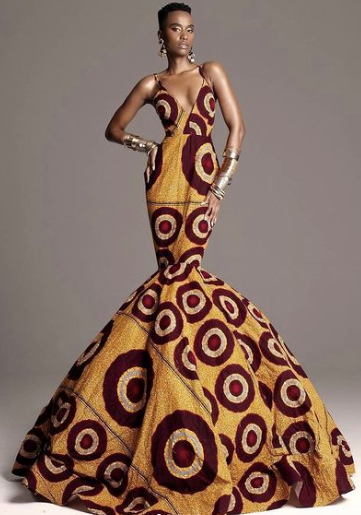
Image Credit House of Nala
Epic dimensions and bold patterns in this fishtail frock
Image Credit Designers and Brands Featured, Instagram and Pinterest
African prints conjure up a very specific picture in the mind: bold and geometric, cheery and joyful, earthy and evocative of the habitat and communities they evolved from. They’re arguably one of the most recognizable forms of surface textile patterns, joining the ranks of tartan, animal prints and denim.
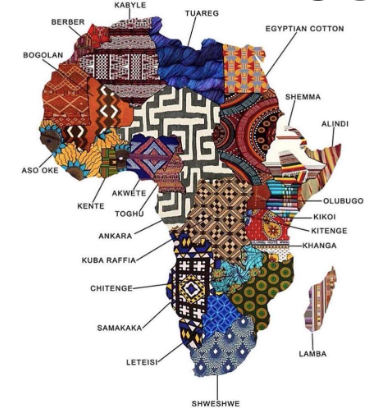
Image Credit African Fashion on Facebook
A simplistic depiction of the different African textile patterns across the continent
As one migrates from South to North, East to West across the vast continent of Africa, just like the geography and languages change, the iconic textile patterns also evolve – sometimes subtly, at other times dramatically, from one region to the next. Whether one finds yourself in Ghana, Cameroon, Kenya, The Ivory Coast, Nigeria or South Africa, like a human fingerprint the local cloth has its very own distinctive patterns, designs and stories. Interestingly enough these prints have had an epic global journey from where they once were conceived in Europe to how they’ve developed their own roots on African soil. Today they’re fully embedded in African culture … in fact, it’s unthinkable to separate these bold patterns from the sunny African continent and its people.
Read on and enjoy the visual feast of African prints (the glamorous, the fun and the quirky), see how top global as well as local African designers make these prints their own. Marvel at the contemporary local textile designers’ own versions of African prints. Also, there’s a little section for textile lovers on some of the most famous African prints.
Finally, there’s a list of STOCKISTS at the end, for your little black book!
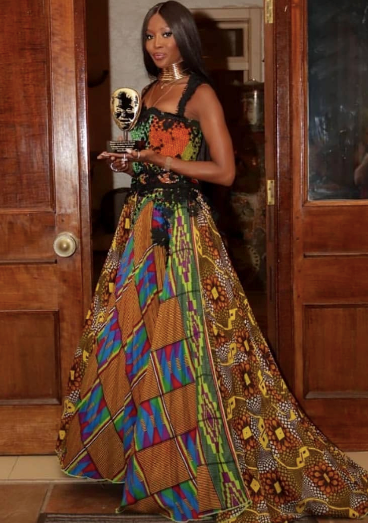
Image Credit Marianne Fassler
South African designer Marianne Fassler’s spectacular gown made of a kaleidoscope of African prints for supermodel Naomi Campbell, at the Inaugural Forever Young Ball at President Nelson Mandela’s house
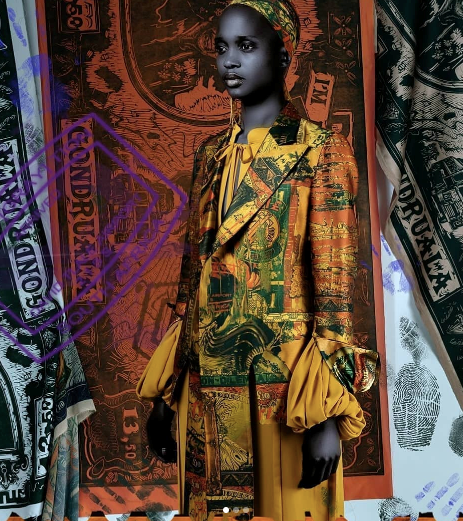
David Tlale on Instagram
South African designer David Tlale is renown for his innovative in-house prints each season
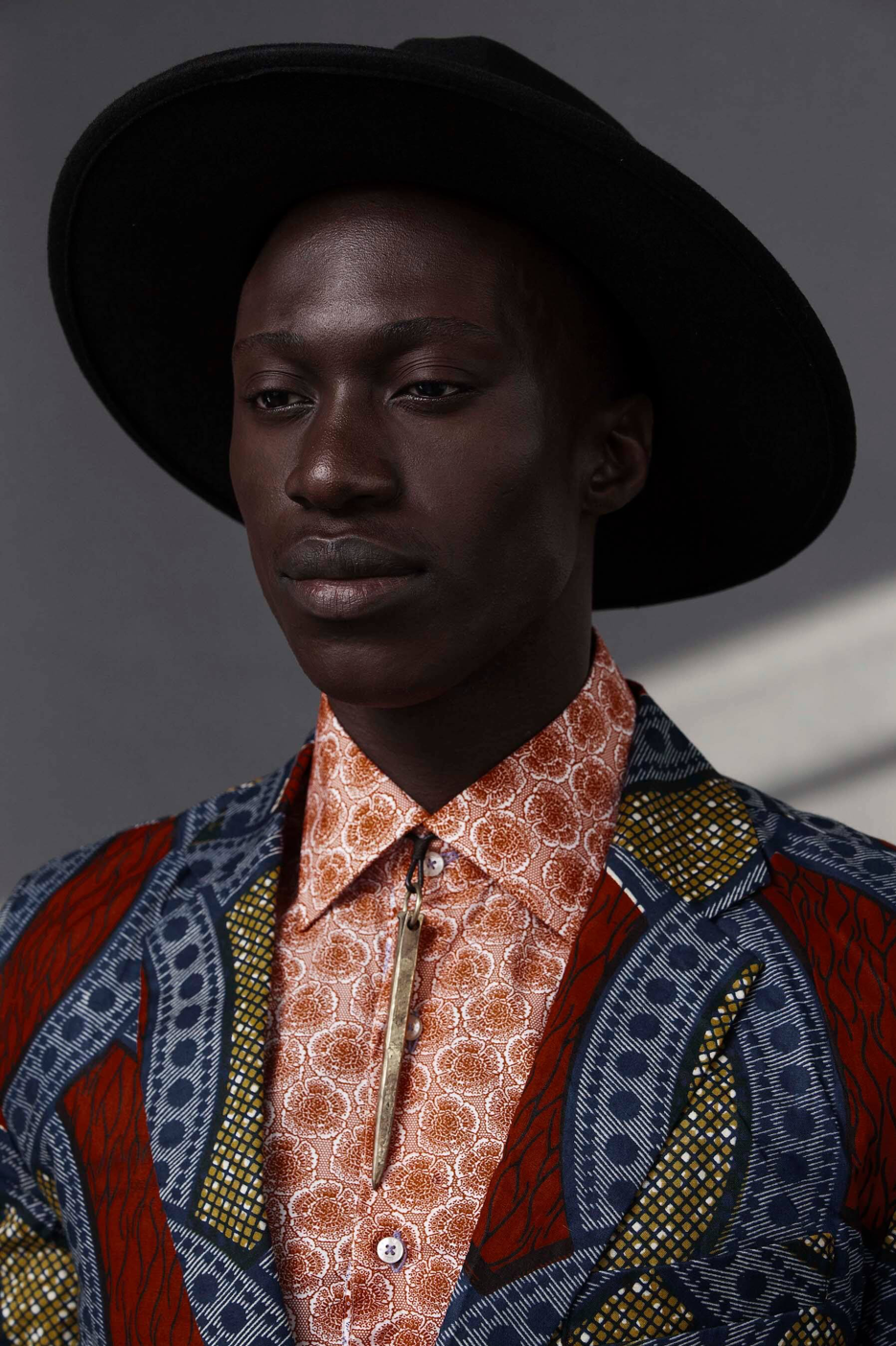
Image Credit VRVO
Bold West African prints work a treat, here embellished with South African jewellery designer VRVO’s pendant
African fabrics with their unique designs and particular weaving and dyeing methods are very specific to the people of the continent. They’re part of the language, so to speak, they’re also an intrinsic part of the social fabric and the customs, culture and history of the different peoples.
Like the universal staples tartan, plaid and denim, the unmistakably distinctive African prints are perennial favourites with global designers, especially as features in Spring Summer collections. Forever in vogue, like the classic leopard print, African prints never seem to go ‘out of fashion’, instead designers return year upon year re-working these fabrics into fresh designs.
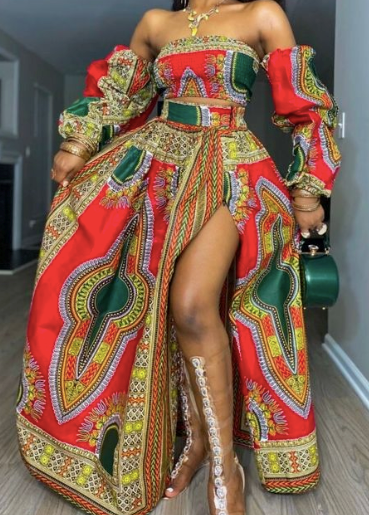
Image Credit Etsy on Pinterest
African prints fit for a queen!
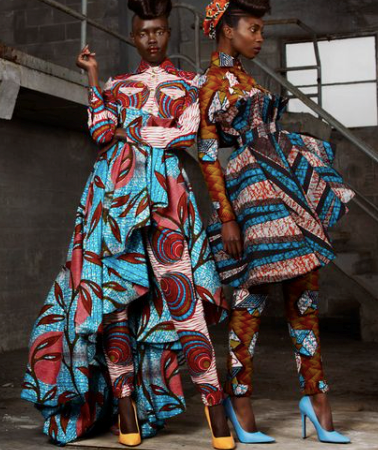
Image Credit It’s Africa Inspired on Pinterest
Bold and striking West African textile ensembles
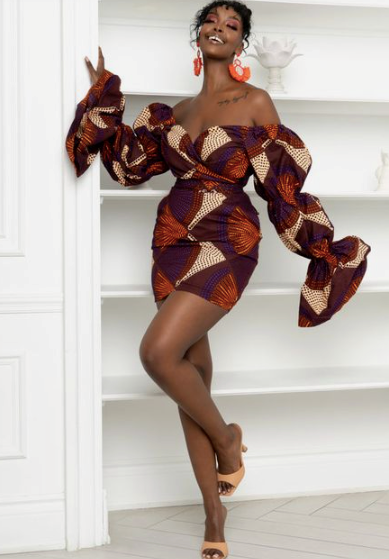
Image Credit Ofuure on Pinterest
Bold and beautiful!
Designer brands like YSL (Yves Saint Laurent grew up in Morocco and had a brilliant eye for African design), British brands Burberry, Matthew Williamson and Stella McCartney, French brand Louis Vuitton, Italian brands Marni and Valentino, American brand Marc Jacobs, to name but a few, return to the African drawing board time and time again for inspiration. Over the years some of these brands have been tarnished with the brush of cultural appropriation and ‘stealing’ the African aesthetic … be that as it may, the African print-trend keeps working its glorious magic year after year. On the global catwalks (particularly in the vacation-inspired Resort collections) these inimitably bold prints shine brightly, they always look fresh and contemporary and are reminiscent of sun-soaked holidays in exotic places.
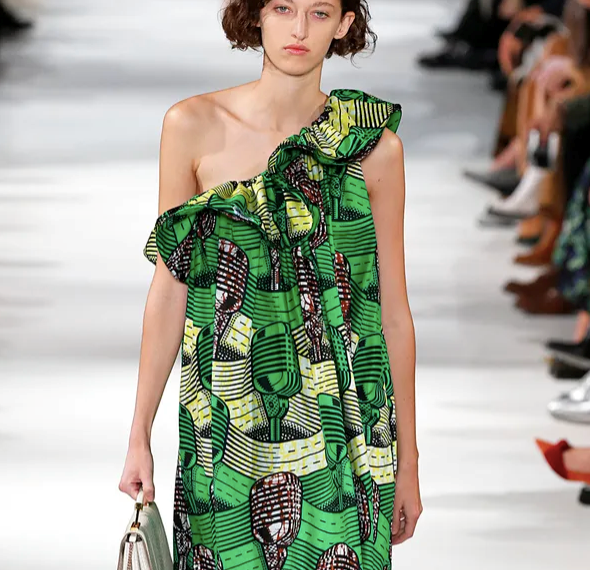
Image Credit Huffpost
Stella McCartney (2017) was accused by some in the industry of cultural appropriation for her use of West African prints
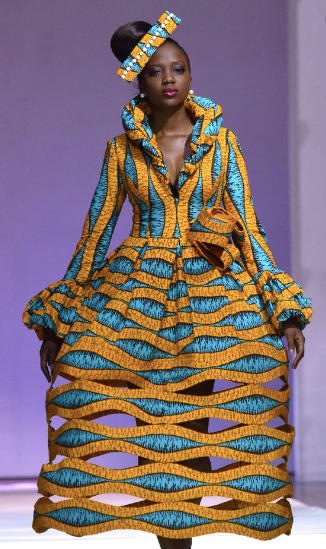
Image Credit African Prints in Fashion
Stella McCartney 2017 using West African Ankara prints
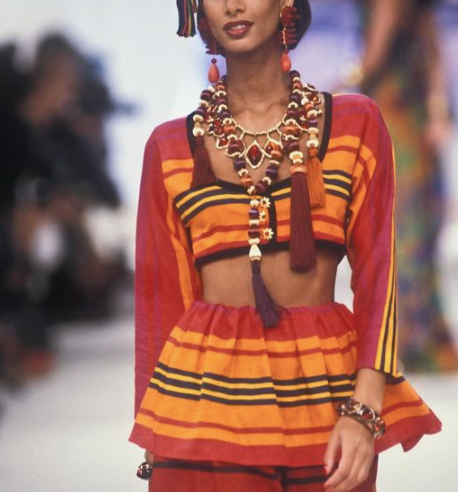
Image Credit Fashion Anthology as pinned by Lisa (YSL) on Pinterest
Yves St Laurent’s Spring Summer 1991 kikoi fabrics
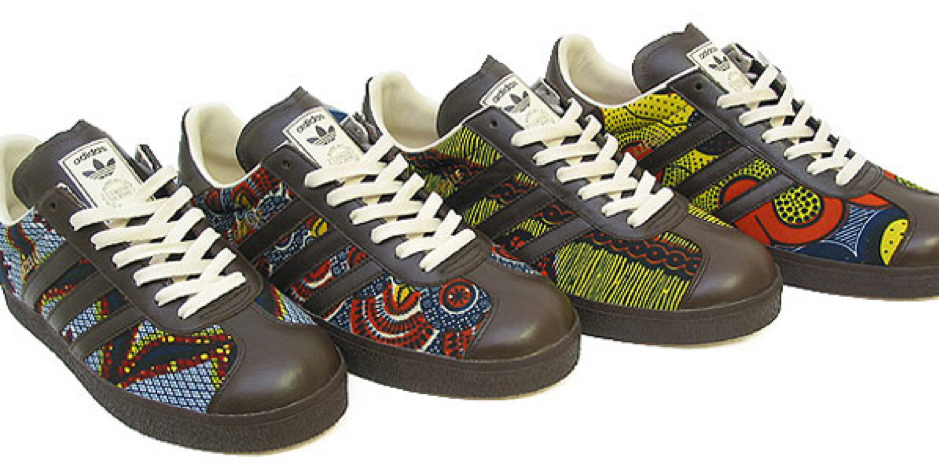
Image Credit Adidas
An Adidas collaboration with West African prints
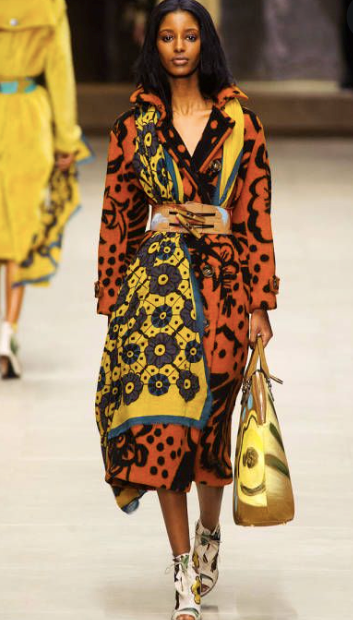
Image Credit Pinterest
Burberry Prorsum showcasing striking African prints
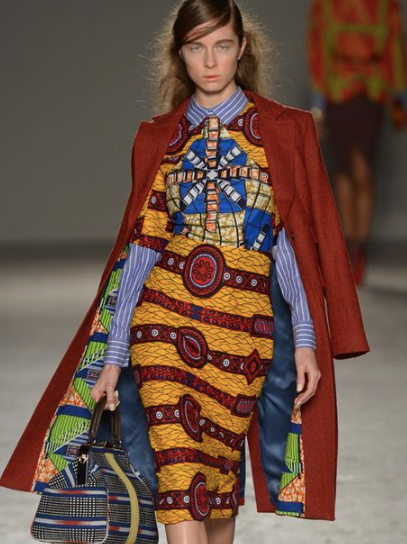
Image Credit WWD on Pinterest
Stella Jean Fall 2014 using the vibrant Ankara fabric
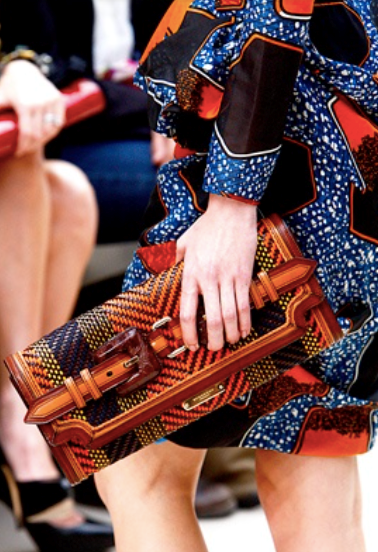
Image Credit Pinterest
Burberry Prorsum’s Ankara prints
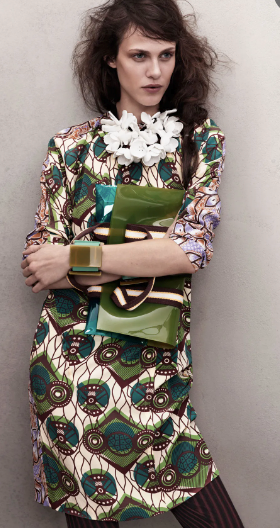
Image Credit Vogue UK
Marni’s exquisite own African prints for H&M 2012
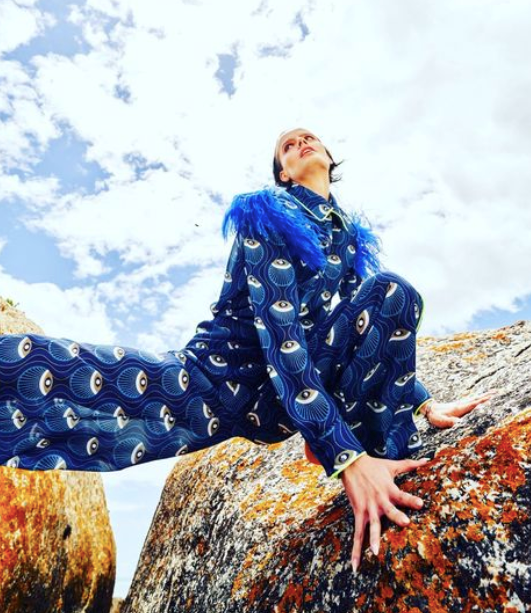
Image Credit Gavin Rajah on Instagram, photography @katinkabester stylist @louw.77
South African Designer Gavin Rajah’s take on African prints
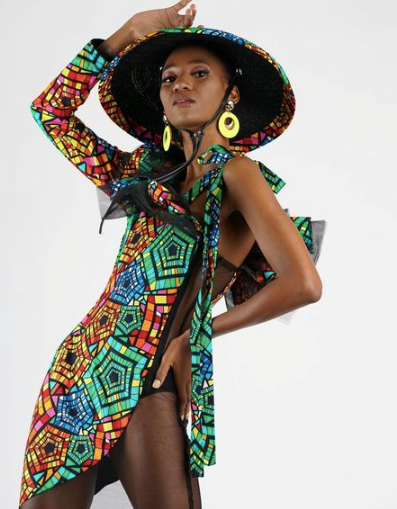
Image Credit House of Nala
A contemporary take on African prints at Johannesburg’s phenomenal African luxury fashion concept emporium, House of Nala, with boutique collections of top African designers under one roof
The Chanel of Africa, Vlisco!
In true African storytelling tradition every single pattern has a delightful (and often moralistic) tale behind it. The fabrics are assigned names and meanings that reflect on the women (and men) who wear them. Often these names are tongue-in-cheek renditions of the truth and with Africa being rather matriarchal, they express plenty Girl Power!
Ever heard of ‘The Chanel of Africa’? AKA Dutch company Vlisco, who has been making and selling the distinctive patterned cloth we associate with African textiles since 1846? When its founder Pieter van Vlissingen mechanized wax-printing previously used in the West Indies to produce batik, he introduced these prints to the West-African markets and the rest is fashion history! To this day these fabrics with their extraordinary distinctive designs and high-quality fibres are hugely sought-after by African and global couture houses alike. Vlisco boasts more than a whopping 300 000 spectacular designs in their archives!
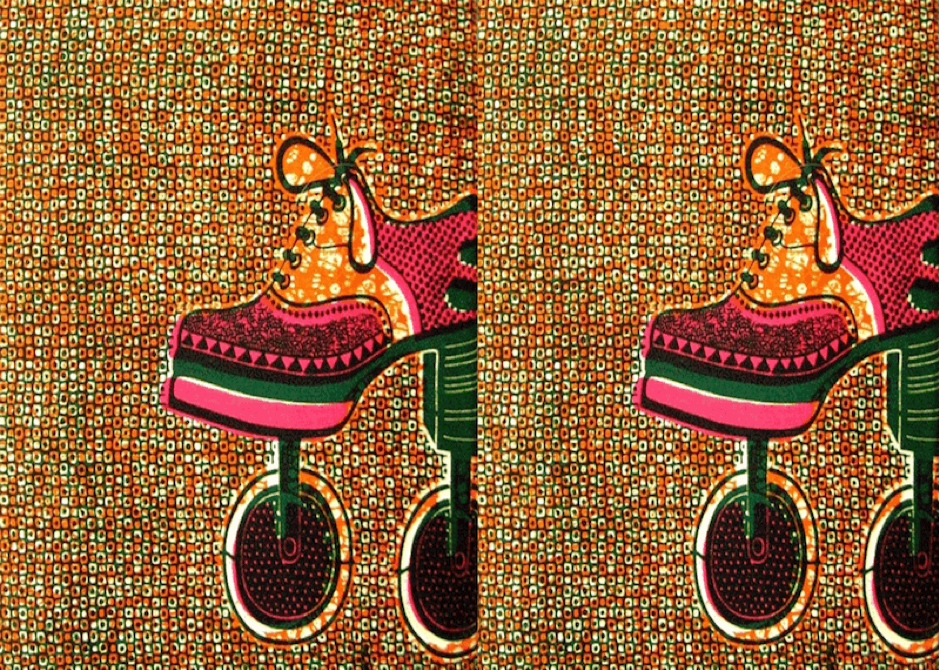
African fabrics – just like Persian rugs in the Middle East – are much more than just beautiful prints, they’re social commentary too. The patterns are often based on objects, subjects and topics people encounter in their everyday lives, the things they aspire to, their habits and hobbies. These carefully thought-out designs are a medium of communication, they’re an extension of the wearer’s personality and can be very expressive, even moralistic and humorous, with tongue-in-cheek names like ‘You leave, I leave’, ‘Kofi Annan’s Brain’ and ‘Michelle Obama’s Handbag’. Many cloths commemorate historic moments like a visit from America’s First Lady, Ghanaian Independence Day or International Women’s Day.
Enjoy the visual feast that follows, with so much detail and thought put into every design!
The print below, with a chicken, chicks, and a headless rooster – titled “La Famille”- hints that the wearer may have a husband, but that she (not he) is the real head of the family!
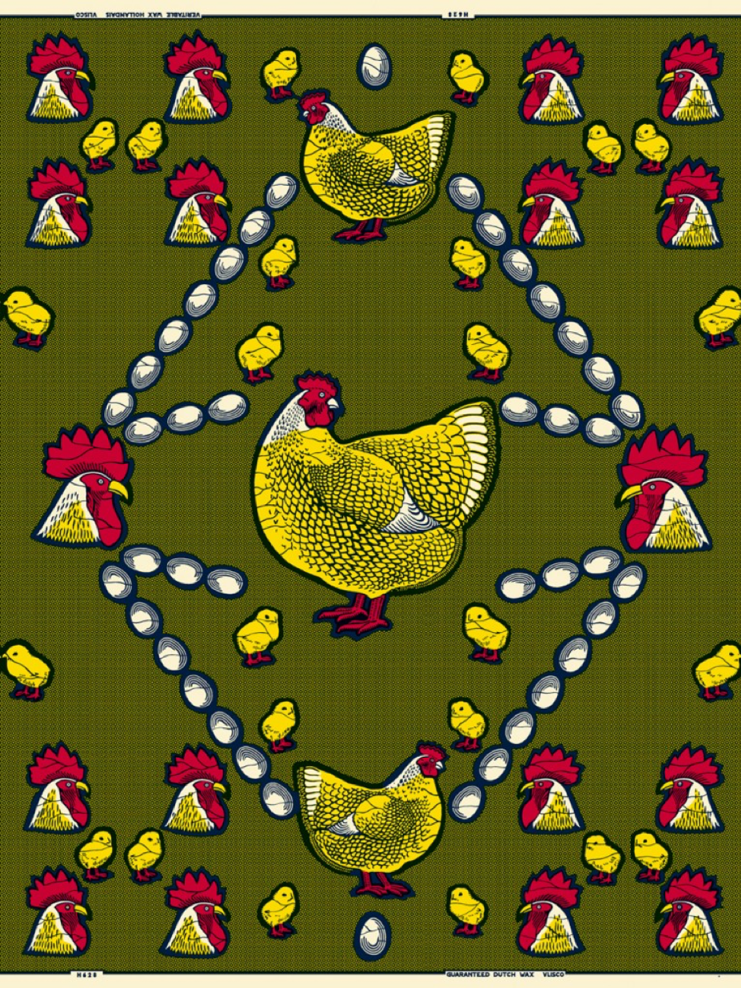
Image Credit Pinterest
La Famille
Current events can also spark new designs. When Michele Obama visited Ghana, she inspired new fabric designs: “Michelle Obama’s Handbag” and “Michelle Obama’s Shoes”!
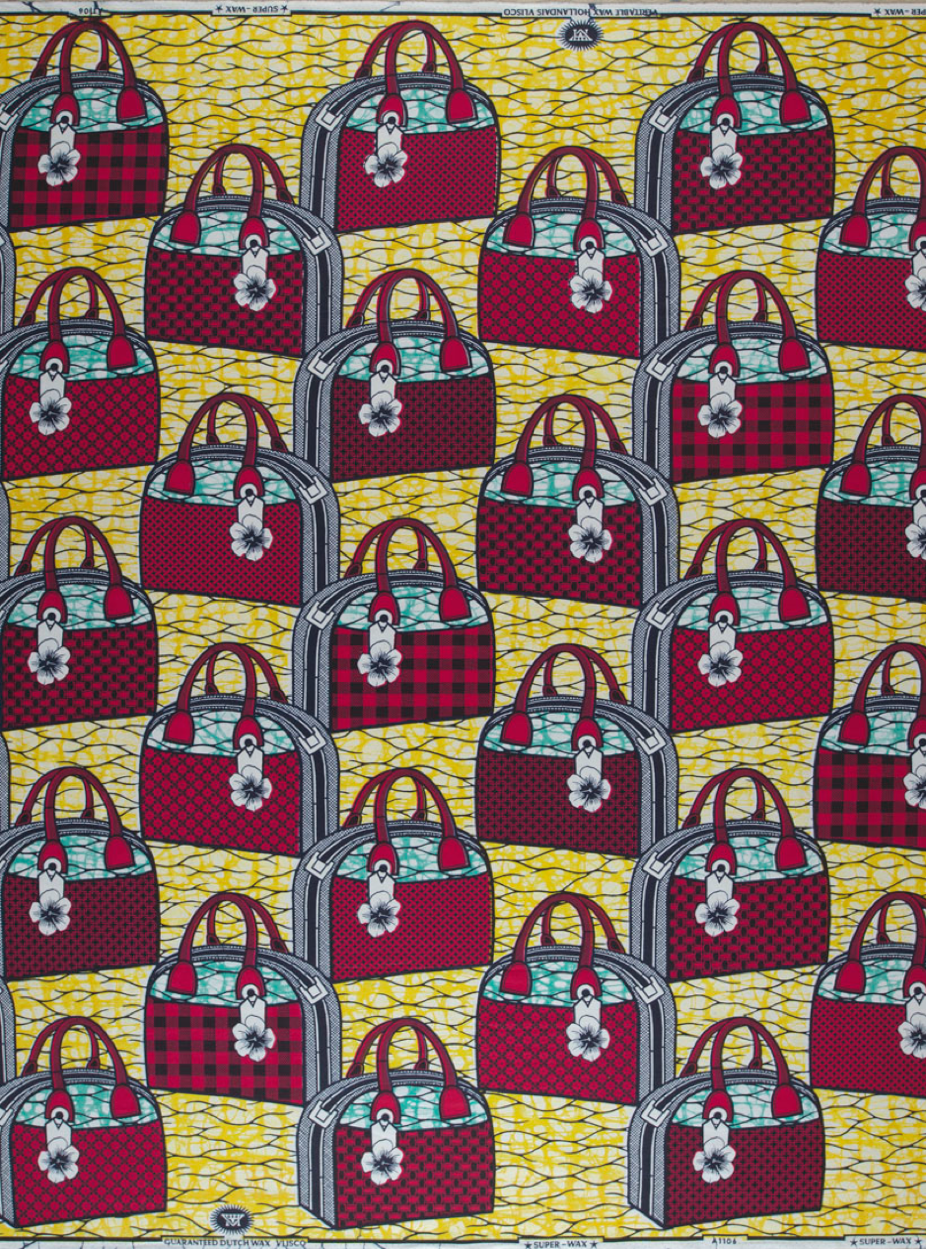
Image Credit Pinterest
Michelle Obama’s Handbag
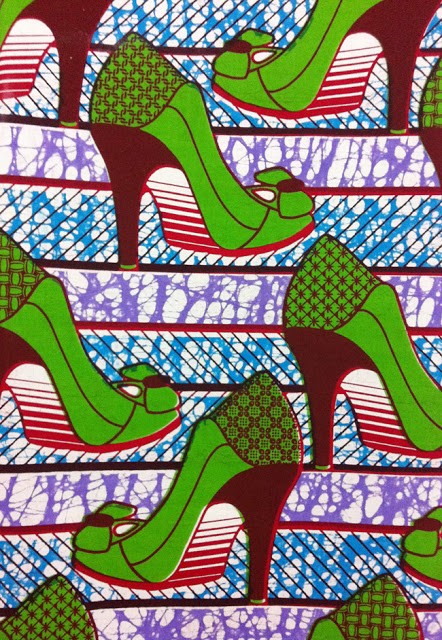
Image Credit Pinterest
Michelle Obama’s Shoes
Some prints take on a very colloquial meaning: the Fan in the print below, for example, means that its wearer can dance the cha cha!
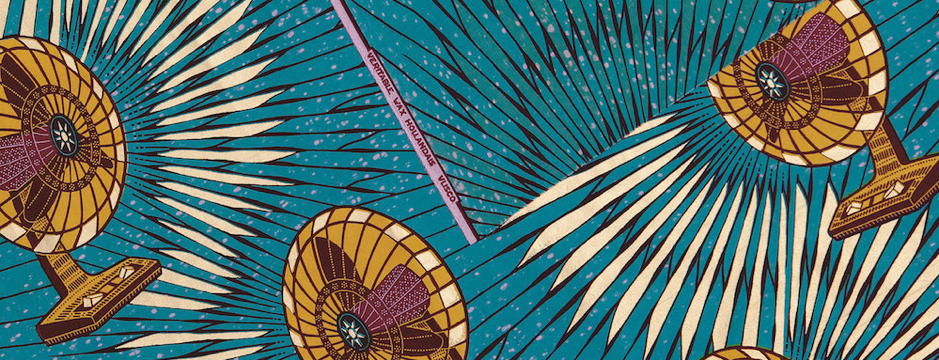
Image Credit Pinterest
Fan print
The ABC print below is for a woman who is proud of her education.
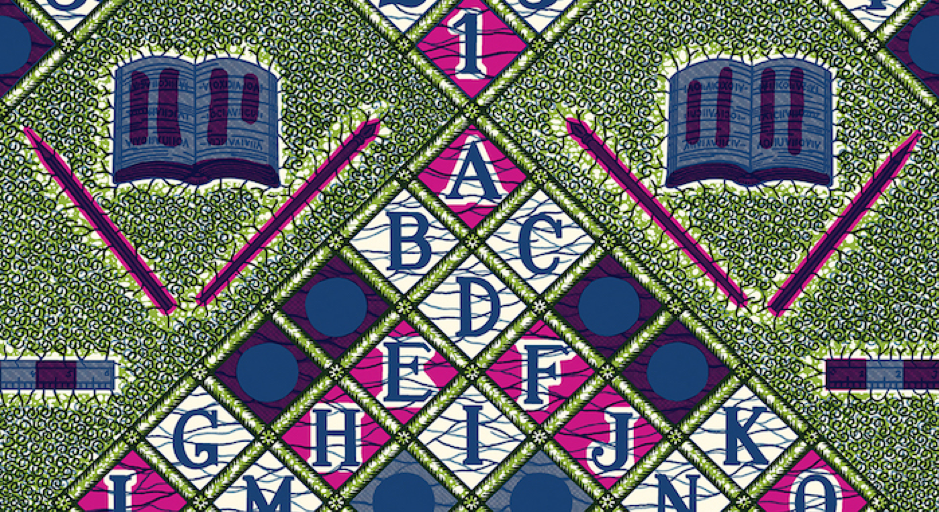
Image Credit Pinterest
ABC print
The horse design is generally worn by Igbo women in Nigeria at their Women’s Meeting in August. In the Ivory Coast the same print is called “Je cours plus vite que ma rivale” (I run Faster Than My Rival) and is a metaphor for the rivalry between women!
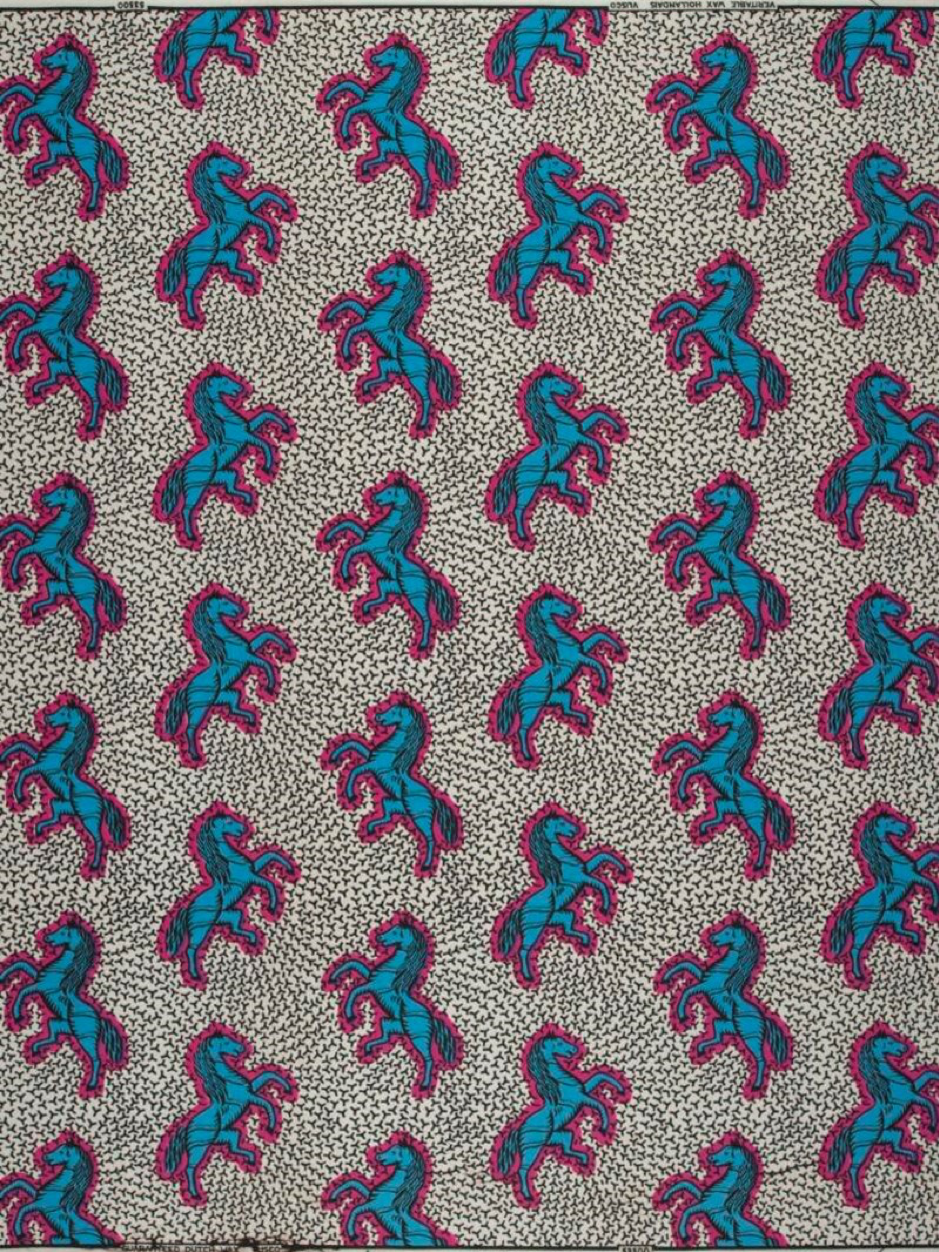
Image Credit Pinterest
I Run Faster Than My Rival
The print below dates back to 1940 and is called Six Bougies, but has changed its meaning over time. It signified economic prosperity at first, as the wearer signalled that he or she could afford a six-cylinder car, but the print evolved with the times and came to signify that the woman wearing the print can, in fact, handle 6 men!
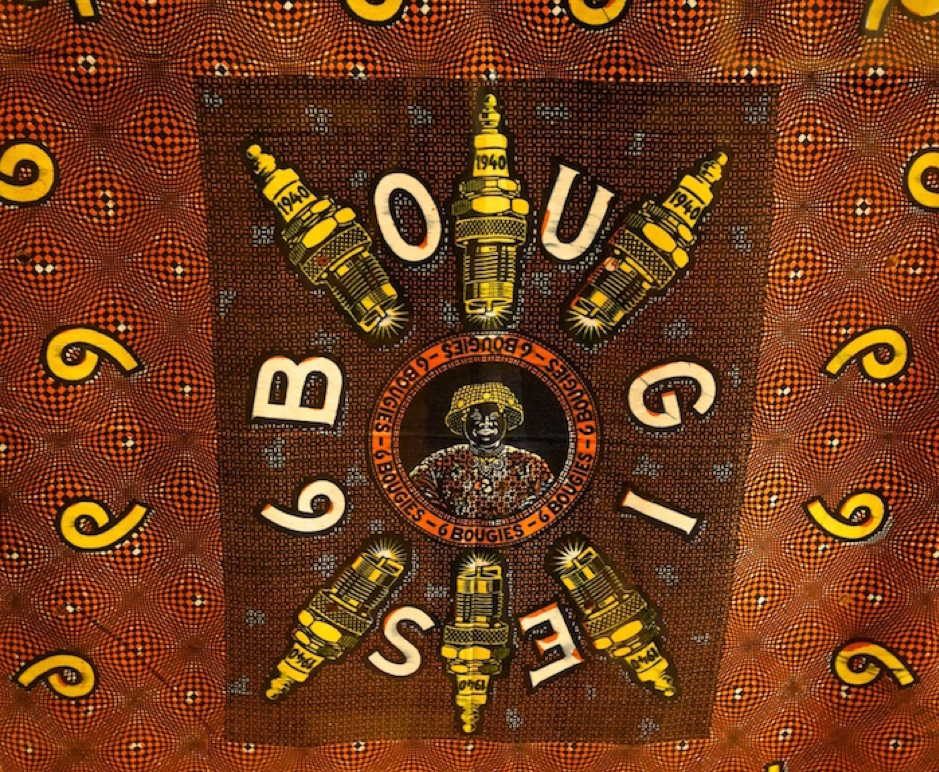
Image Credit Pinterest
Six Bougies
The print below ‘You leave, I leave’ or “Si tu sors, je sors” come with a message: women who wear this print tell men something like “if you think marriage is something you can take and leave as you please, I will do the same!”
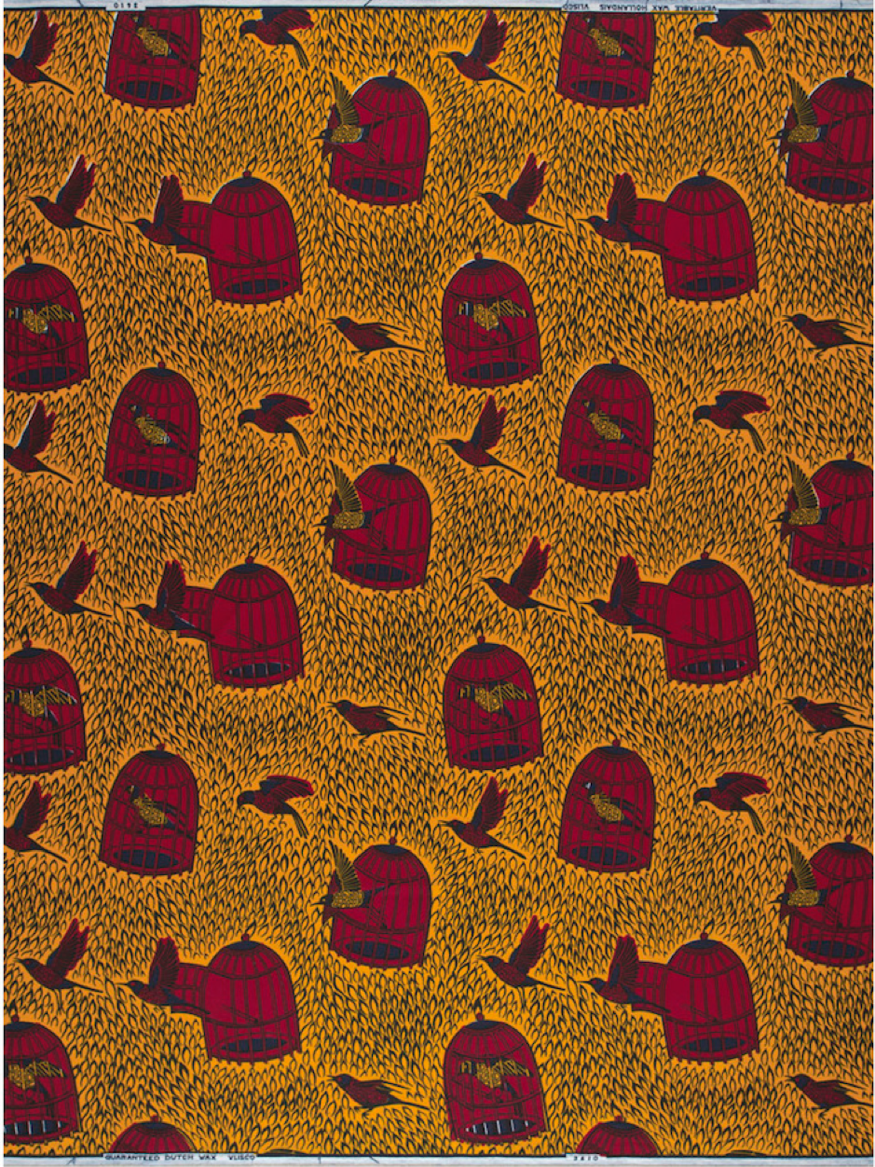
Image Credit Pinterest
You Leave, I Leave
A very popular print in Ghana is “Kofi Annan’s Brain” – it received the name on the day Kofi Annan, a Ghanaian diplomat, gave a speech in New York on the very day the print was launched.
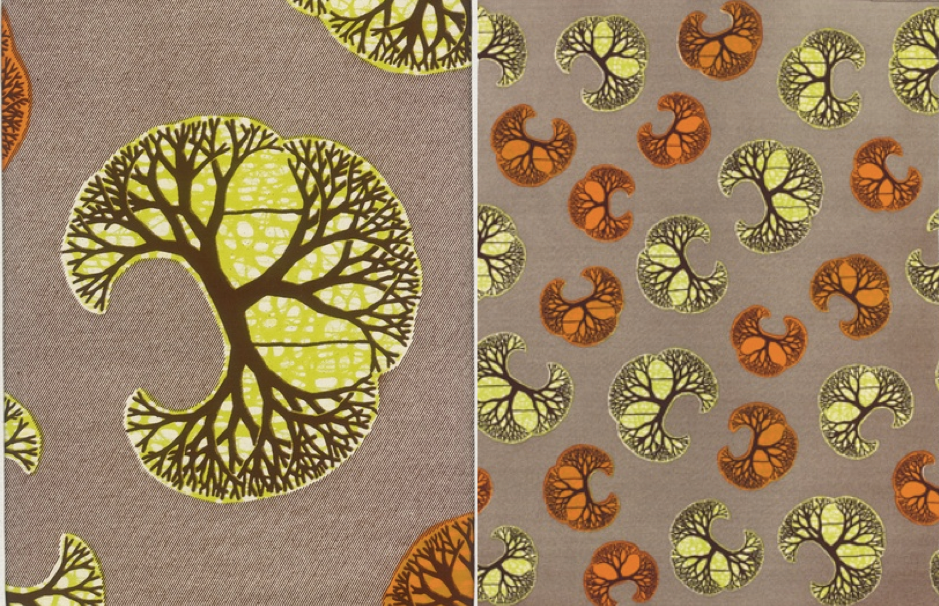
Image Credit Pinterest
Kofi Annan’s Brain
Enjoy the fun designs below worn by people to signify one’s profession, your skills, your likes and dislikes, hobbies and possessions!
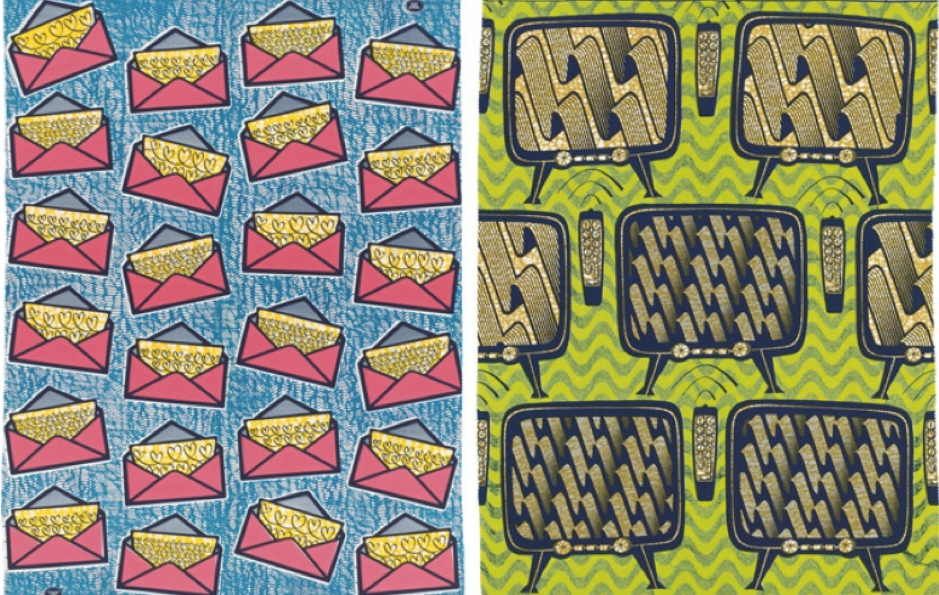
Image Credit Pinterest
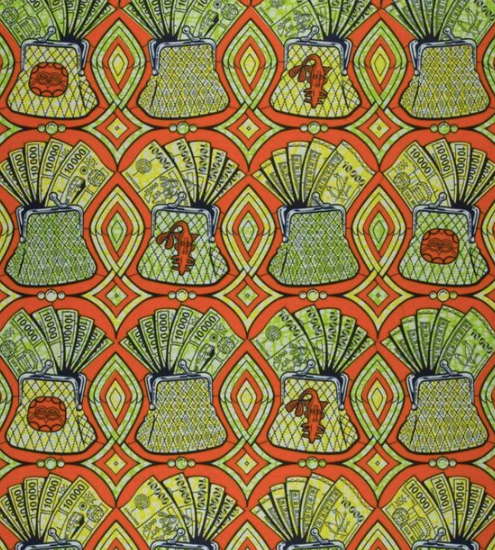
Image Credit Pinterest
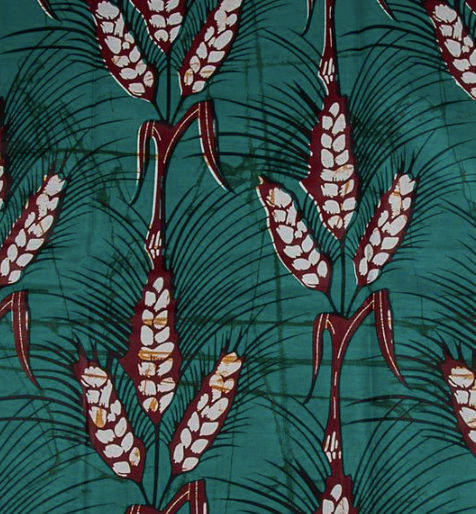
Image Credit Pinterest
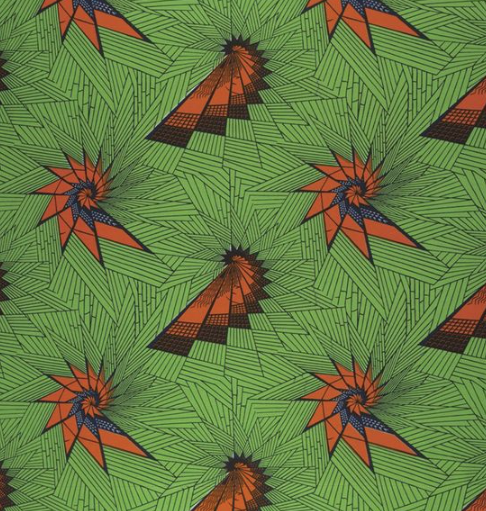
Image Credit Pinterest
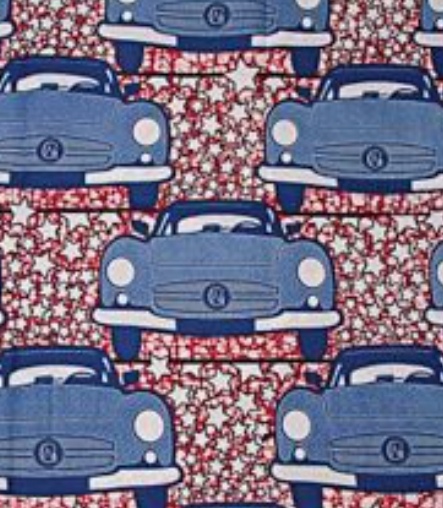
Image Credit Pinterest
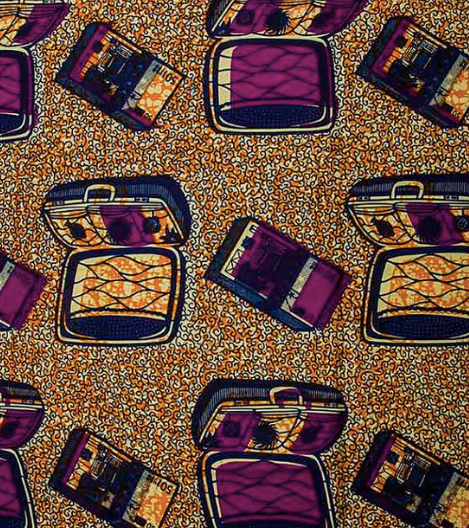
Image Credit Pinterest
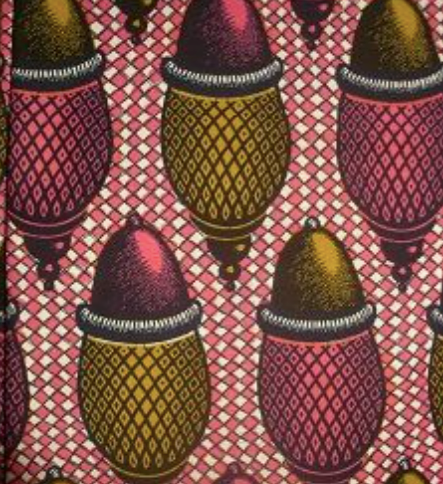
Image Credit Pinterest
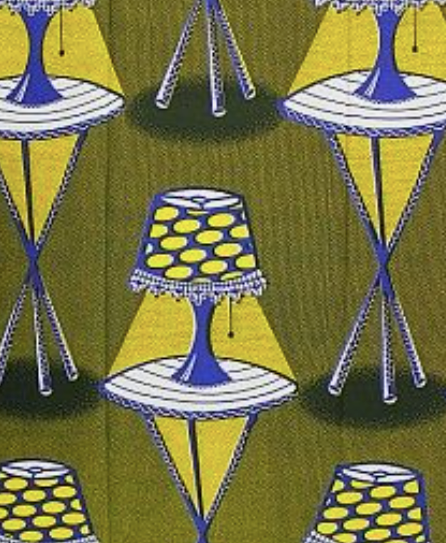
Image Credit Pinterest
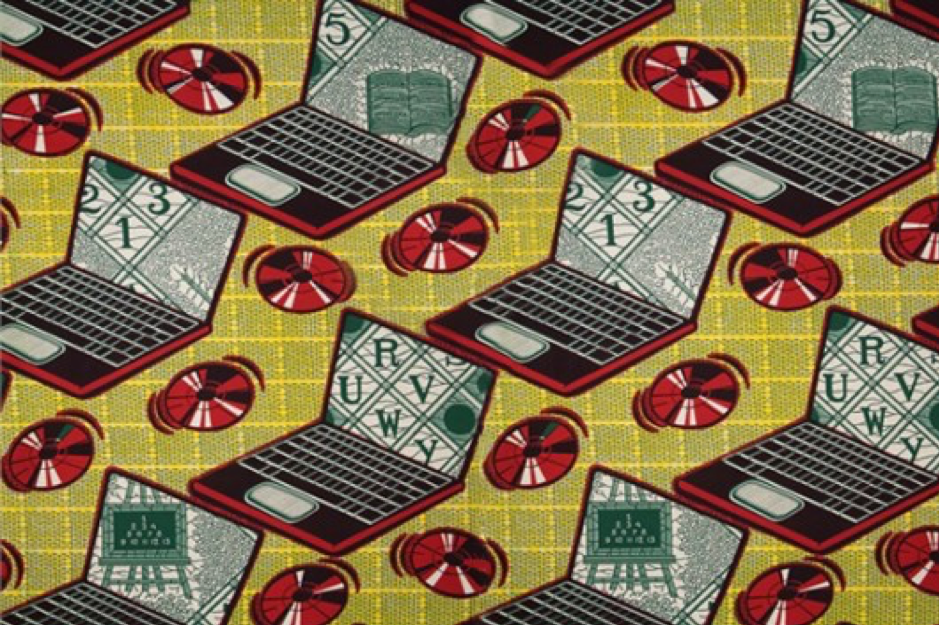
Image Credit Pinterest
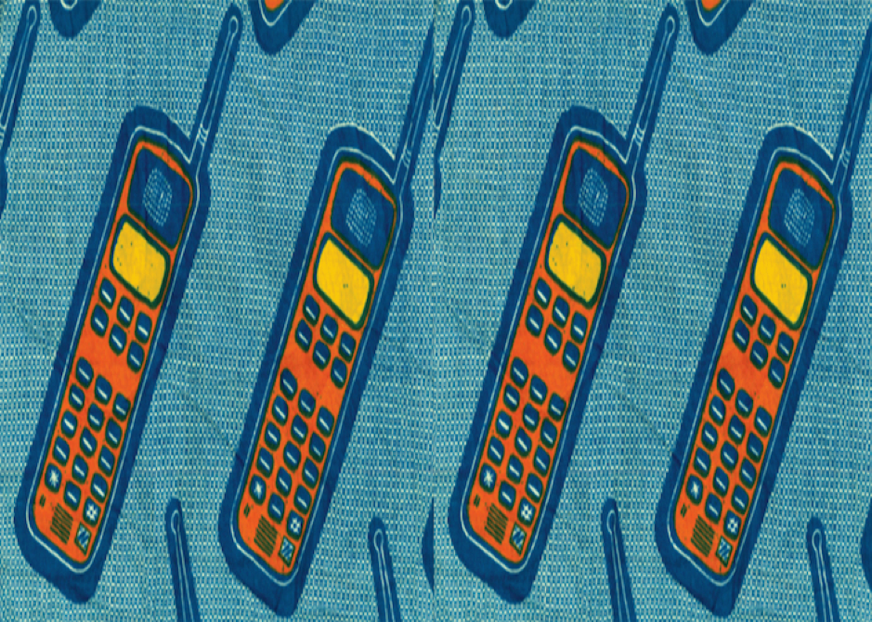
Image Credit Pinterest
PRINTS, PRINTS, PRINTS!
Local TEXTILE DESIGNERS create them …
Local FASHION and ACCESSORY DESIGNERS use them in many magical and innovative ways.
Textile designers in countries like South Africa, Zimbabwe and Nigeria have started to develop their own brands of ‘African-inspired’ fabrics. Tracy Rushford of Shine-Shine and Skinny LaMinx in Cape Town, Mungo in Plettenberg Bay and Ardmore in Kwazulu Natal are amongst the numerous local South African textile designers that manufacture their own versions of African prints. These prints find their way into clothing, upholstery, wallpaper, cushions and all sorts of accessories – from moon bags to rucksacks, caps to aprons and laptop covers.
SHINE SHINE (https://www.instagram.com/shineshine.ct)
Shine Shine is a Cape Town-based family business priding themselves on ‘a creative explosion of African-infused fabrics’, designed in-house.
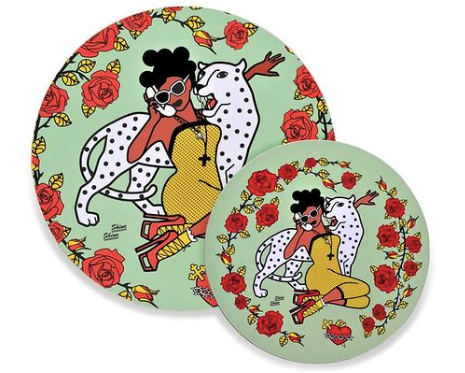
Image Credit Shine Shine on Instagram
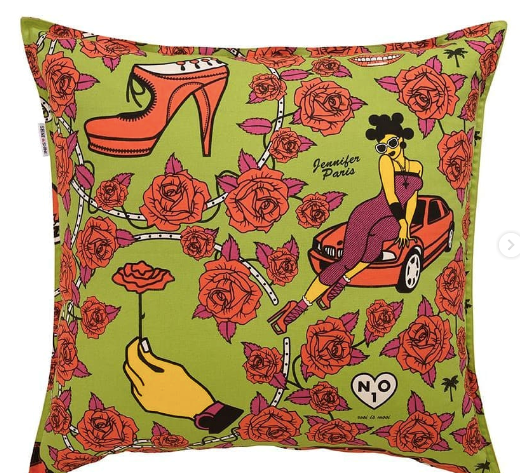
Image Credit Shine Shine on Instagram
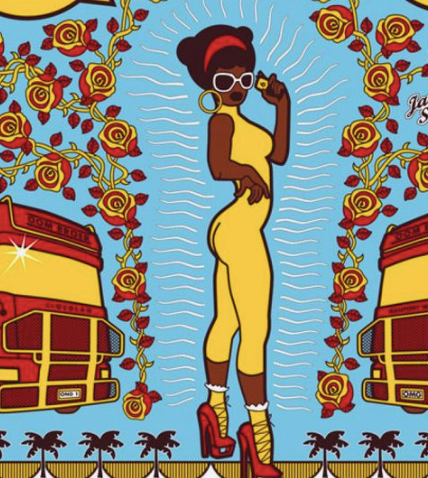
Image Credit Shine Shine on Instagram
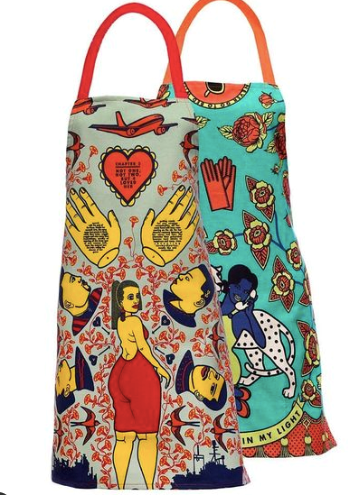
Image Credit Shine Shine on Instagram
ARDMORE (https://www.instagram.com/ardmore)
Ardmore is a family business in South Africa’s Kwazulu Natal province, employing local artists to create one-off pieces of ceramics, jewellery, wallpaper, cloth and more.
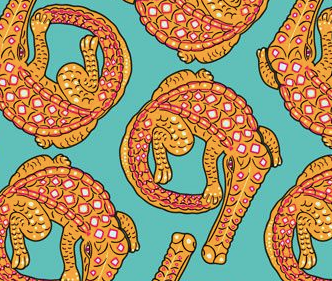
Image Credit Ardmore on Instagram
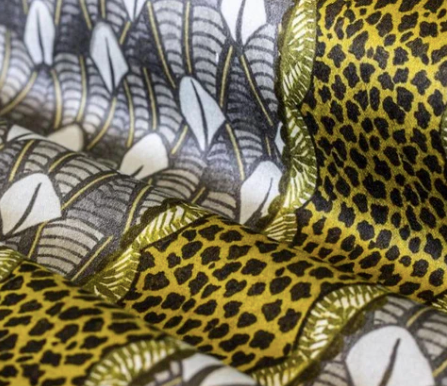
Image Credit Ardmore on Instagram
SKINNY LAMINX (https://www.instagram.com/skinnylaminx)
Skinny LaMinx is a Cape Town-based company creating beautiful printed fabrics, which they transform into stunning products like tote bags, cushions, table cloths and even clothing.
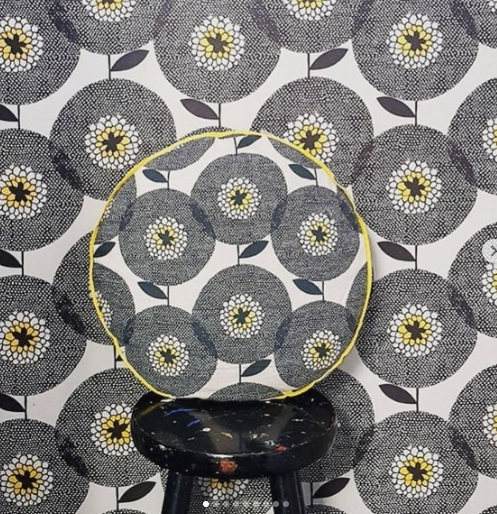
Image Credit Skinny LaMinx on Instagram
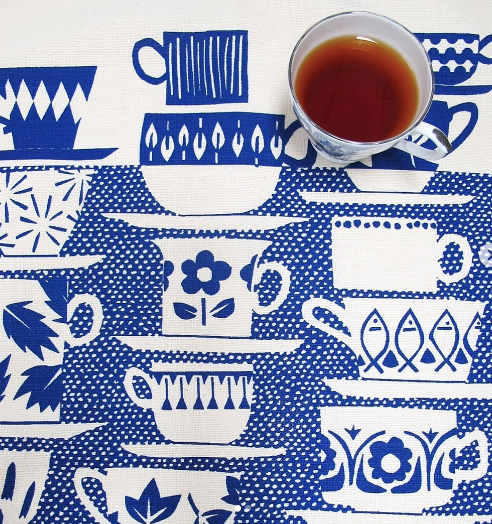
Image Credit Skinny LaMinx on Instagram
MUNGO (https://www.instagram.com/mungodesign)
Mungo weaves their kikois and other organic textiles – towels, wraps, scarves and dish cloths – at their mill in Plettenberg Bay, South Africa and supplies retailers all over the world with these organic beauties.
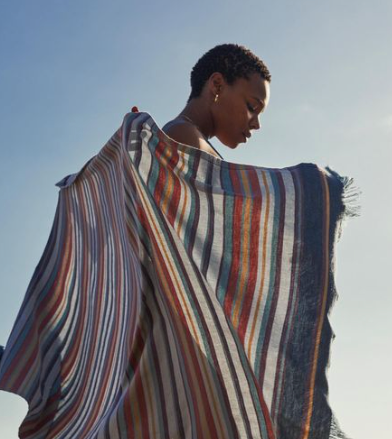
Image Credit Mungo on Instagram
IMPRINT (https://www.instagram.com/imprint_za)
Imprint describes itself as an ‘Afro futuristic brand’ based in Cape Town. Their signature look is a delightful kaleidoscope of different African prints combined.
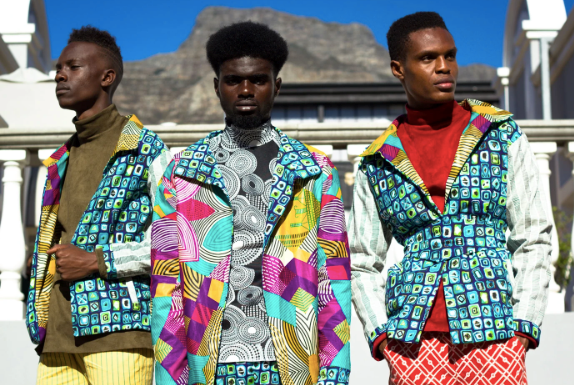
Image Credit Imprint on Instagram
South African designers Imprint’s innovative use of African prints
JUDITHA SAKINOFSKI (https://www.instagram.com/judithasakinofsky)
Juditha Sakinofski is a Cape Town-based designer with a flair for and a love of West African prints. She uses these to create her tote bags, handbags, cushions and shoes.
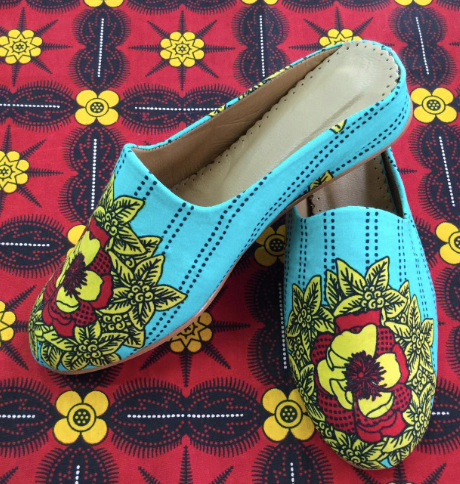
Image Credit Juditha Sakinofski on Instagram
South African designer Juditha Sakinofsky’s African Print loafer
MANTSHO (https://www.instagram.com/palesamokubung)
Palesa Mokubung of Mantsho creates contemporary African designer clothing, using African prints. Recently she collaborated with H&M to create a fabulous range of prints and plains
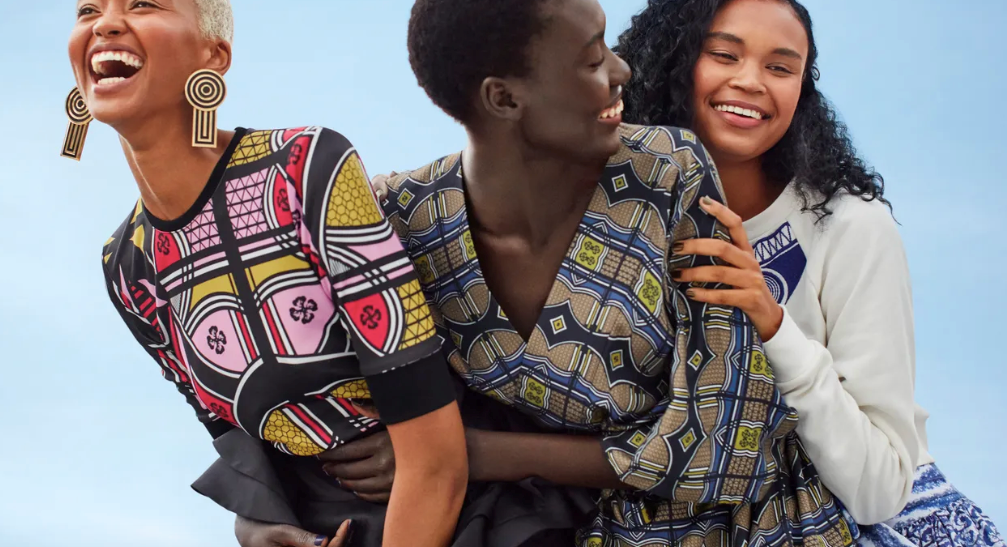
Image Credit Teen Vogue
South African designer Mantsho’s stunning collection for H&M
THABO MAKHETHA (https://www.instagram.com/tmakcc)
Thabo Makhetha is a Cape Town-based designer whose garments utilize traditional Basuthu blankets and African prints to create contemporary classic clothing with a distinctly African feel.
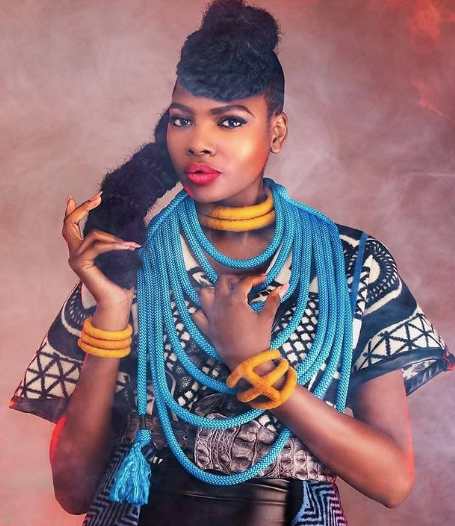
Image Credit Natalie Field Photography
South African designer Thabo Makhetha’s wonderful patterns on Instagram
DID YOU KNOW? THESE ARE 5 OF THE MOST FAMOUS AFRICAN TEXTILES:
1. Ankara
This stunning cloth originally produced by the Dutch through the batik process is probably the best known of the African prints. Whether worn as a glamorous outfit, shoes or handbag, or as earrings or a phone casing, these cheery prints light up one’s day, like the African sun itself!
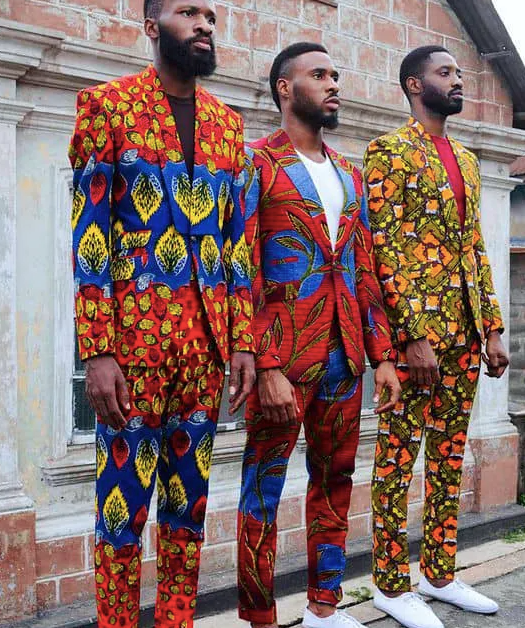
Image Credit Svelte Magazine
Striking men’s suits in West African Ankara cloth
2. Adire
This ancient textile art involves the tie-dye method and was initially the Yoruba women in Nigeria who created adire. Tie-dye textiles make their appearance year on year in both tailoring and ready-to-wear on runways and retailers – especially as resort wear.
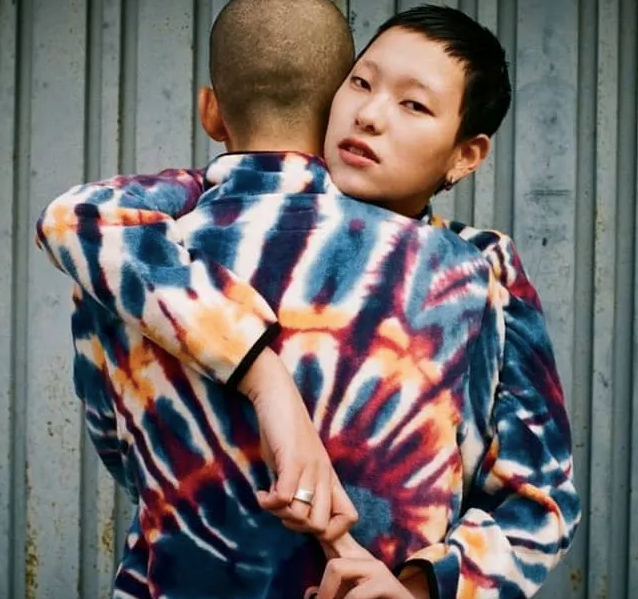
Image Credit Svelte Magazine
The wonderful tie0dye effects of the Adire cloth
3. Bogolan
‘Mudcloth’ is produced by the Bambara tribe of Mali, who initially used the cloth as camouflage when hunting and in combat. It doesn’t have any harmful chemicals – only dried plants and fruits – roots, tree barks, leaves, and wild grapes – as a dye in a process that starts with dyeing the cotton with fermented mud. Bogolan becomes clothing, table cloths, pillows, upholstery and wall hangings.
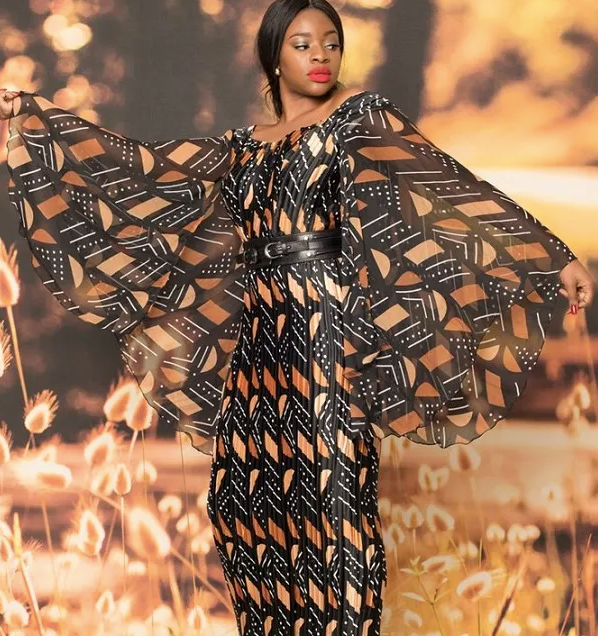
Image Credit Svelte Magazine
4. Shweshwe
Traditionally indigo in colour, this distinctive fabric with its geometric patterns also comes in purple, red and brown. It is a printed dyed cotton fabric regarded as the traditional cloth of South Africa.
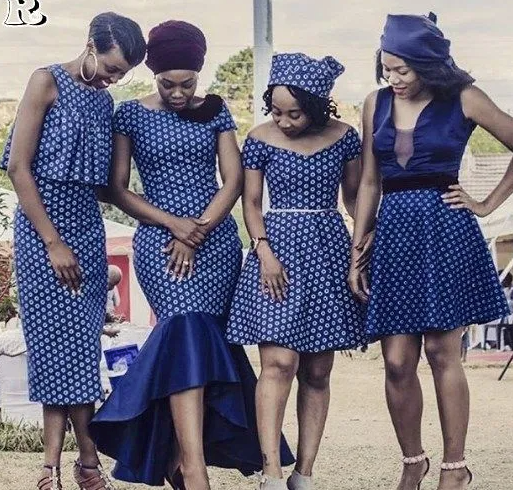
Image Credit Svelte Magazine
5. Kikoy
Associated with the elegant Maasaai of Tanzania and Kenya, the stunning striped kikoy fabric is handmade and from cotton to become wraps, towels and pieces of clothing.
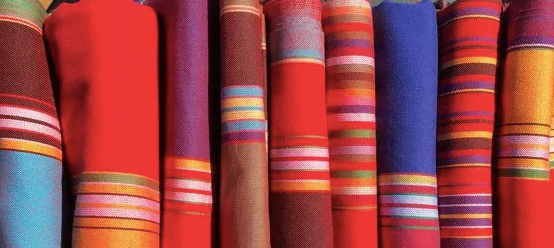
Image Credit Svelte Magazine
STOCKISTS
[ad_2]
Source link

